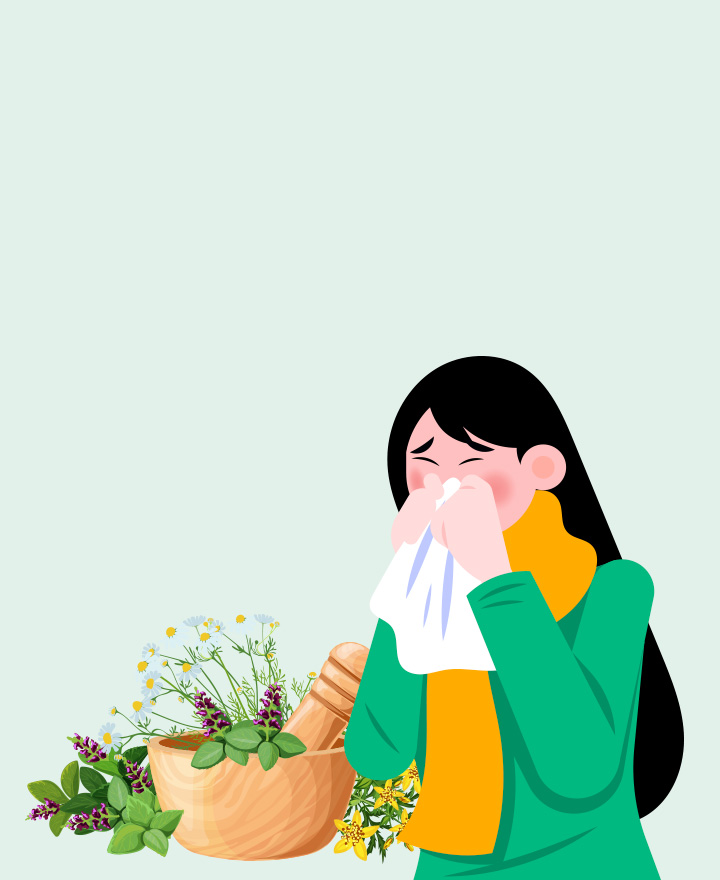

Managing Breathing Problems in the Rainy Season
Most of us await the monsoon, but for some, it can also bring on unwelcome respiratory issues. The damp and humid conditions can worsen existing breathing problems, making it challenging to take a deep, refreshing breath. This blog updates the readers on strategies to manage breathing difficulties during the rainy season. Read on to know more.
What Causes it?
Several factors contribute to breathing problems in the rainy season, such as —
• Increased Air Pollution:
Rain can trap pollutants like dust, smoke, and pollen closer to the ground, making it harder to breathe, especially for those with asthma or allergies.
• Humidity:
High humidity levels can irritate the airways, leading to congestion and difficulty breathing. This is because moist air is heavier and requires more effort to move through the lungs.
• Mould and Dust Mites:
Damp conditions promote the growth of dust mites and mould, both common triggers for allergies and asthma. Inhaling these allergens can irritate the airways, causing inflammation and breathing difficulties.
• Viral Infections:
The rainy season often sees a rise in viral infections like the common cold and flu. These illnesses can worsen existing respiratory problems and make breathing more difficult.
Health Conditions Aggravated During Monsoon
Here are some pre-existing conditions that can be aggravated during the rainy season —
• Asthma:
As mentioned earlier, managing asthma in the rainy season can be particularly problematic. The factors mentioned above can trigger asthma attacks, leading to wheezing, coughing, chest tightness, and shortness of breath.
• Chronic Obstructive Pulmonary Disease (COPD) :
Similar to asthma, COPD can also worsen during the monsoon due to increased airway irritation from pollutants and allergens. People with COPD may experience increased difficulty breathing, coughing, and wheezing.
• Allergies:
Seasonal allergies triggered by pollen and dust mites can worsen during the rainy season, leading to a runny nose, itchy eyes, and congestion, all of which can make breathing uncomfortable.
Tips for Managing Breathing Problems
While you can't control the weather, there are steps you can take to manage your breathing and minimise discomfort during the monsoon —
• Minimise Exposure to Triggers:
Stay informed about your area’s pollen counts and air quality levels. When pollution levels are high, limit time spent outdoors and keep windows closed. Consider using an air purifier indoors to improve air quality.
• Control Indoor Allergens:
Reduce dust mites and mould growth by keeping your home well-ventilated. Use a dehumidifier to control humidity levels and regularly clean surfaces with a damp/moist cloth to prevent dust build-up. Wash bedding and curtains in hot water frequently.
• Practice Good Hygiene:
Frequent handwashing can help prevent the spread of cold and flu viruses that can worsen breathing problems.
• Stick to a Healthy Lifestyle:
Eating a well-balanced diet rich in fresh fruits, vegetables, and whole grains strengthens your immune system, making you less susceptible to infections. Getting regular exercise can also improve lung function and overall health.
• Manage Existing Conditions:
If you have asthma or allergies, strictly adhere to your doctor's prescribed treatment plan. This may include regular use of inhalers or medications to control inflammation and prevent flare-ups.
• Breathing Exercises:
Breathing exercises like pursed-lip breathing and diaphragmatic breathing can help manage shortness of breath and improve lung function.
Conclusion
By following these tips and seeking medical attention for persistent issues, readers can breathe easier throughout the monsoon season. Remember, early intervention is key to managing respiratory problems effectively.
One of the important components of our overall wellness is also being financially secured. Healthcare emergencies can happen any time, but a good health insurance policy can protect you from such uncertain situations. To know more about Wellness and other health related tips, visit the wellness corner.
Source: netmeds.com, indushealthplus.com, pharmeasy.in, onlymyhealth.com, maxhealthcare.in
Disclaimer: This blog provides general information and discussions about health and related subjects. The information and other content provided in this blog, website or in any linked materials are not intended and should not be considered, or used as a substitute for, medical advice, diagnosis or treatment. Kindly contact your Doctor before starting a new medicine or health regime.
Related Articles
Yoga Breathing Exercises For A Healthy Lifestyle
How To Practice Anulom Vilom Breathing?
The Best Ways To Keep Your Lungs Healthy
Comprehensive Guide On Bronchitis Disease
Practice Mindfulness Techniques To Get Rid Of Stress
Published on July 22, 2024














 Health Insurance
Health Insurance  Travel Insurance
Travel Insurance  Car Insurance
Car Insurance  Cyber Insurance
Cyber Insurance  Critical Illness Insurance
Critical Illness Insurance
 Pet Insurance
Pet Insurance
 Bike/Two Wheeler Insurance
Bike/Two Wheeler Insurance  Home Insurance
Home Insurance  Third Party Vehicle Ins.
Third Party Vehicle Ins.  Tractor Insurance
Tractor Insurance  Goods Carrying Vehicle Ins.
Goods Carrying Vehicle Ins.  Passenger Carrying Vehicle Ins.
Passenger Carrying Vehicle Ins.  Compulsory Personal Accident Insurance
Compulsory Personal Accident Insurance  Travel Insurance
Travel Insurance  Rural
Rural